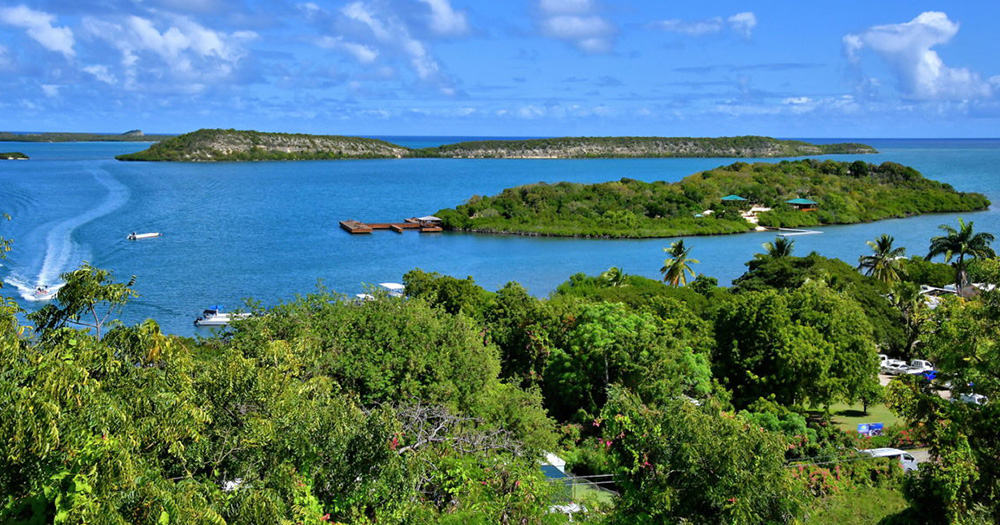In a win for LGBTQ+ rights Tuesday, July 5, a High Court judge in Antigua and Barbuda ruled the Caribbean nation’s criminalization of same-sex sexual activity unconstitutional.
Judge Marissa Robertson struck down Sections 12 and 15 of the Sexual Offenses Act of 1995, on the basis that the sections violated rights to liberty, protection of the law, freedom of expression, protection of personal privacy and protection from discrimination due to sex, all of which are guaranteed by the Antiguan constitution.
Orden David, an openly gay man, brought the case along with the organization Women Against Rape, which represented the LGBTQ+ community and its interests generally. The organization does extensive work with the LGBTQ+ population of Antigua and Barbuda, and its co-founder and current president Alexandrina Wong was actively involved in the court case.
“We are very much hoping the Antigua ruling will prompt other legal systems in the Caribbean to review their laws and policies, and how they impact on vulnerable populations,” Wong said to the BBC.
The organization Eastern Caribbean Alliance for Diversity and Equality (ECADE) counts seven Caribbean countries as still having legislation in place that prohibits sexual relations between members of the same sex. This legislation is not often enforced, but those campaigning for change say that such laws “marginalise LGBTQ people, while tacitly sanctioning violence and discrimination against them.”
The sections of the Sexual Offenses Act of 1995 struck down on Tuesday previously criminalized what the legislation termed ‘buggery’ and ‘serious indecency’ through legislation inherited and adapted from colonial British law.
A term not widely known today, the Act defined ‘buggery’ as “sexual intercourse per anum by a male person with a male person or by a male person with a female person.” This offence carried a sentence of fifteen years in prison if it happened between adults, regardless of consent.
While the offence of ‘serious indecency’ carried a lesser sentence of five years in prison, the legislation around it discriminated against the LGBTQ+ community even more explicitly than that around ‘buggery.’
The Act specified that ‘serious indecency,’ defined as “an act, other than sexual intercourse (whether natural or unnatural), by a person involving the use of the genital organ for the purpose of arousing or gratifying sexual desire,” did not apply if the act in question happened in private between a husband and wife or between a consenting male and a female both over the age of 16.
In allowing sexual relations between two people as long those people were of opposite sexes, this ‘indecency’ section created a distinct differentiation between heterosexual and homosexual Antiguans and Barbudians.
Robertson agreed with the claimants in the case, finding that the criminalization of same-sex relations violated a number of rights enshrined in the constitution of Antigua.
Especially of note, Robertson ruled that Sections 12 and 15 of the Act violated the right “not to be subjected to inhuman or degrading punishment or other such treatment,” as they “support and encourage homophobia in Antigua and Barbuda, predisposing and imperilling the… claimant… to negative stigmas, discrimination, exclusion, violence, abuse, and other forms of unfavourable treatment.” She added that the sections “are degrading, demeaning, and damaging to human dignity by virtue of the impugned sections’ unjustifiable diminution of personal autonomy.”
According to Robertson’s ruling, the Antigua and Barbuda Attorney General, acting as the defendant, agreed with David and Wong’s points regarding the unconstitutionality of the Act’s sections. “The respondent in these proceedings has conceded that the understanding of fundamental rights has evolved so that the provisions of sections 12 and 15 of the Act do infringe the rights of the claimants and persons similarly circumstanced,” Robertson wrote in her judgment of the case.
The LGBTQ+ rights movement has made progress in the Caribbean in the past few years, with Pride parades occurring in Barbados and Guyana and changes in legislation, such as a lifted ban on cross-dressing in Guyana and a lifted homosexuality ban in Trinidad.
Homophobia still pervades society in Antigua and Barbuda, though. Wong believes there may be pushback against the ruling from religious leaders, since the island nation has a large Christian population. Many Antigua residents have been raised to believe same-sex relations are “sinful,” according to senator and LGBTQ+ advocate Aziza Lake.
Still, “we must realise society is not static but dynamic,” Wong told the BBC. “Changes are taking place worldwide – and in the Caribbean as well.”
In perhaps the next developments to that changing Caribbean, ECADE is reportedly pursuing constitutional challenges to the ‘buggery’ and ‘indecency’ laws still in place in St Lucia, St Kitts and Nevis, Barbados and Grenada. ECADE told the BBC they expect judgements to be handed down on the first three of these challenges before the end of the year. It should soon be clear, then, whether or not the Antigua decision will pave a path for further decriminalization of same-sex relations in the Caribbean.
© 2022 GCN (Gay Community News). All rights reserved.
Support GCN
GCN is a free, vital resource for Ireland’s LGBTQ+ community since 1988.
GCN is a trading name of National LGBT Federation CLG, a registered charity - Charity Number: 20034580.
GCN relies on the generous support of the community and allies to sustain the crucial work that we do. Producing GCN is costly, and, in an industry which has been hugely impacted by rising costs, we need your support to help sustain and grow this vital resource.
Supporting GCN for as little as €1.99 per month will help us continue our work as Ireland’s free, independent LGBTQ+ media.
